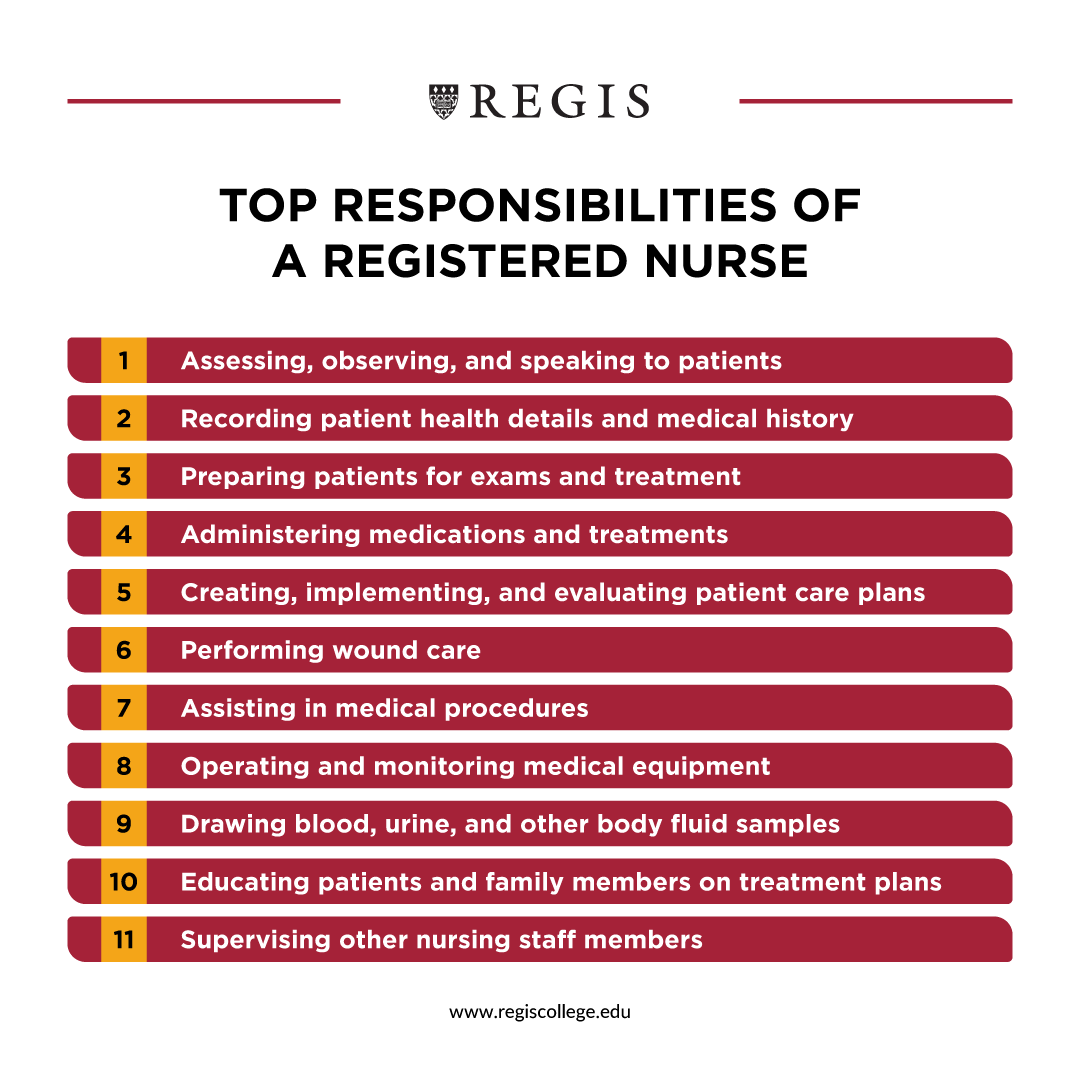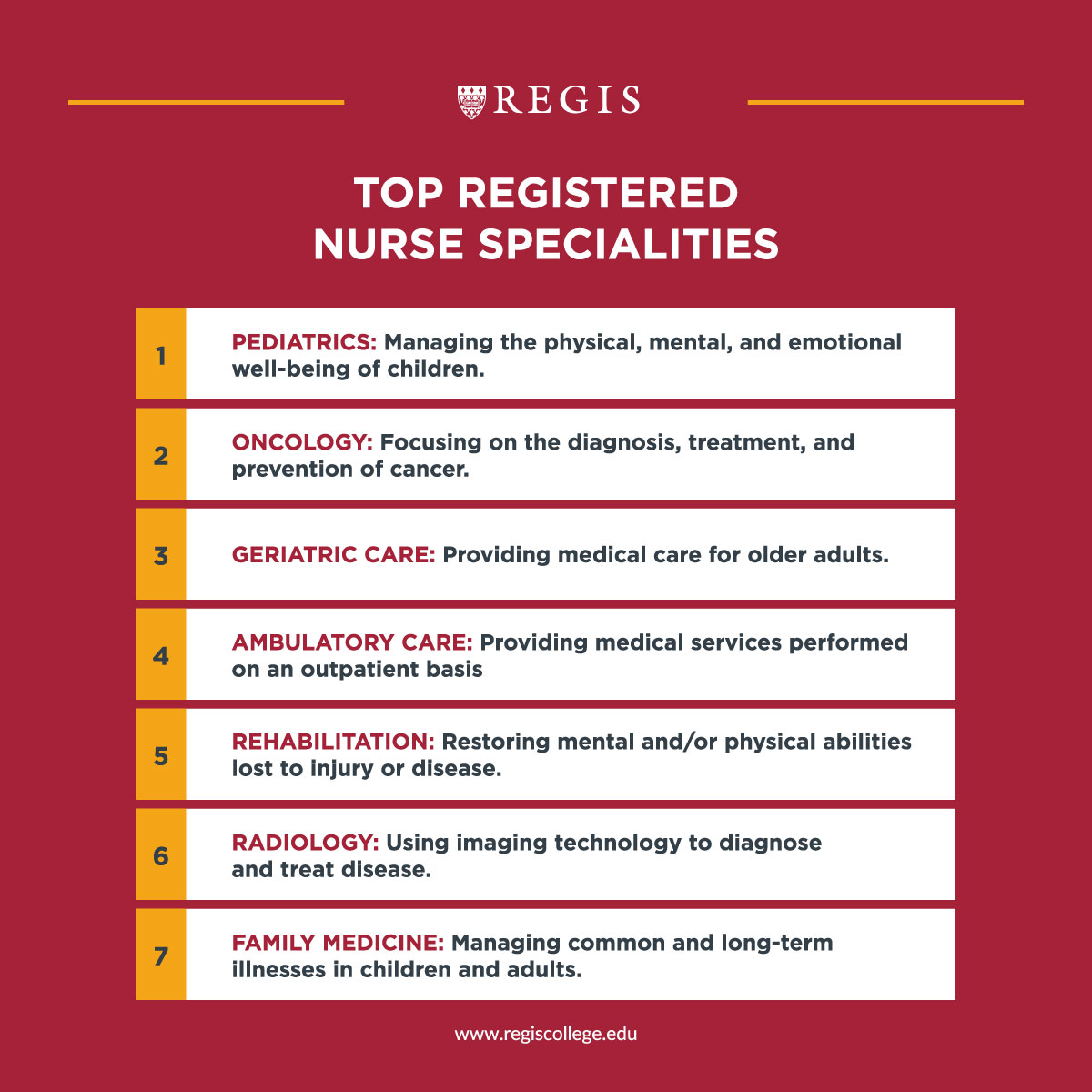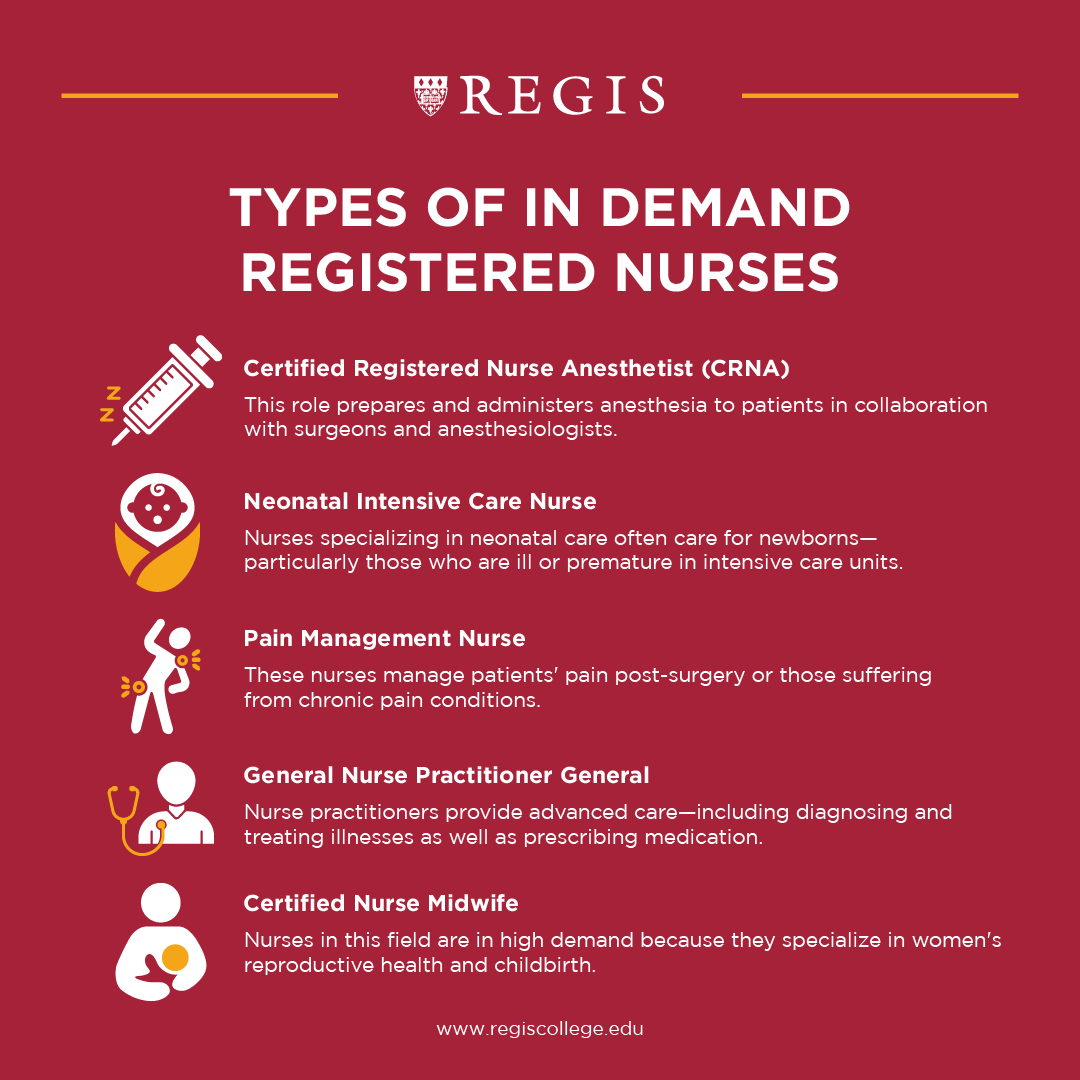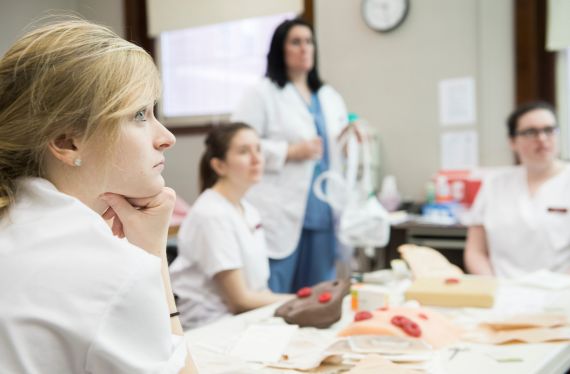A career in healthcare is both challenging and deeply rewarding. If you’re ready to take the first step toward an impactful career in nursing, becoming a registered nurse (RN) is one of the best ways to enter this exciting field.
Key Takeaways
- Registered nurses coordinate patient care, administer treatments, monitor health progress, and collaborate with healthcare teams to deliver exceptional outcomes.
- Becoming an RN typically requires earning an accredited degree (ADN or BSN), passing the NCLEX exam, and obtaining state licensure. A BSN is increasingly preferred for career advancement.
- Registered nurses work in diverse settings, including hospitals, clinics, schools, and even patient homes, with opportunities to specialize in areas like pediatrics, oncology, or critical care.
- The median annual salary for registered nurses in the US is $73,349, with variations based on location, experience, and specialization.
What exactly is a registered nurse and what do registered nurses do? Here's a comprehensive look at the profession, detailing their key roles and responsibilities, typical workplaces, and the steps to become one.
The Role of a Registered Nurse
Registered nurses are the heartbeat of healthcare, wearing many hats every day to provide exceptional care to their patients. Their primary mission is to ensure that every individual receives the precise, compassionate care they need to thrive.
RNs assess and identify patients’ needs, then implement and monitor the patient’s medical plan and treatment. They also ensure patient care is conducted according to the policies and standards of their employer—whether that’s a hospital or another type of healthcare facility.
Most importantly, registered nurses coordinate the care for every patient. From drawing blood and educating patients on their health to working closely with doctors on their medical team, nurses manage all the moving parts in their workspaces.
“I like to think of us as the captain of the ship, because we're actually coordinating the care,” says Donna Glynn, PhD, RN, ANP, and associate dean of pre-licensure nursing at Regis College. “Medicine is so specialized now that the team could include a whole variety of different specialties, but we're the ones who are coordinating all aspects of it from the specialists that see the patient, the primary care provider, physical therapy, and case management to achieve the best patient care.”
Registered Nurse Roles and Responsibilities
An RN’s typical day varies depending on a number of factors, including the location they work in—both geographically and in terms of the type of facility—, the size of the staff and nursing team, and the population they serve. RNs working in a physician’s office, for example, may take on some administrative work, while those working in a hospital are less likely to do this kind of work.
No matter how broad a registered nurse’s duties may be, they’re typically responsible for the following tasks:
- Assessing, observing, and speaking to patients
- Recording details and symptoms of patient medical history and current health
- Preparing patients for exams and treatment
- Administering medications and treatments, and then monitoring patients for side effects and reactions
- Creating, implementing, and evaluating patient care plans with the medical team
- Performing wound care, such as cleaning and bandaging them
- Assisting in medical procedures as needed
- Operating and monitoring medical equipment
- Drawing blood, urine samples, and other body fluids for lab work
- Educating patients and family members on treatment and care plans, as well as answering their questions
- Supervising licensed practical and vocational nurses, nursing assistants, and nursing students

So what does a day in the life of an RN look like? According to Glynn, the shift typically starts with getting a report from the previous shift. From there, the RN completes their own assessment of the patient by obtaining their vital signs like blood pressure and heart rate. This is all in an effort to understand where a patient’s health is and where it needs to be.
“Then you administer the medications, and you're always checking their lab results,” says Glynn. “As a nurse, you’re constantly assessing and reassessing, and then meeting with the team, the patient and their family, and with the case management team.”
Essentially, RNs are critical to healthcare operations because they work with many other nurses and medical professionals on their team to ensure quality patient care, inform patients of their health needs, administer treatment and medications, and keep hospitals and medical facilities performing at their highest standards.
Skills Needed to Be a Registered Nurse
To succeed in healthcare, it is critical to develop the important skills needed to be a nurse.
For example, all healthcare professionals should have a passion for providing the best care to patients. This means RNs need to develop compassion as well as effective communication to be effective liaison between patients and their doctor.
Challenges Registered Nurses Face
While nursing is a rewarding field, it is also filled with a wide range of unexpected challenges. This means registered nurses must have adequate problem-solving skills to create effective solutions for optimal patient care.
Some of these challenges can include staying focused in high-pressure environments, and emotional stress from patient care. As a result, registered nurses also need leadership skills to feel confident in these high-stakes situations.
Effective strategies to overcome these obstacles include utilizing time management tools, and seeking support from mentors.
Common Work Settings for Registered Nurses
While it’s common for registered nurses to work primarily in hospitals, physicians’ offices, and surgical clinics, they also work in assisted living facilities, patient homes, schools, as well as for large corporations, the military, and government institutions.
As an RN, you'll have the opportunity to work across diverse patient populations and specialize in numerous fields of healthcare.
Some of these specialities include:
- Pediatrics
- Oncology
- Geriatric care
- Ambulatory care
- Rehabilitation
- Radiology
- Family medicine
- And more

What’s the typical salary for RNs?
Daily roles and responsibilities aren’t the only things that can vary among registered nurses. A registered nurse’s salary can also vary depending on location and work setting.
The median annual salary for registered nurses in the US was $73,349 ($35.26/hr) in 2024. However, this pay can vary significantly depending on the specific region or state you choose to work in. In Massachusetts, for example, registered nurses earn a median of more than $99,730 per year.
Regardless of where you work though, you can expect a quality salary and benefits package as a registered nurse.
What qualifications does a registered nurse need?
If you're interested in learning how to become a nurse, here are three steps you need to help you get there:

- Earn an accredited degree: In some states, an associate’s degree is the minimum educational requirement for becoming an RN, but in other states a bachelor’s degree in nursing (BSN) will be required. As more states and employers move toward requiring a BSN, this has become the de facto standard in many circles.
- Pass the National Council Licensure Examination (NCLEX)
- Obtain state licensure: Steps can vary significantly from state to state, so be sure to check in the state you wish to practice. For example, you can read more about becoming a nurse in Massachusetts here.
Aside from an expertise in medicine and documenting, analyzing, and reporting on data, it’s also important for registered nurses to have strong soft skills—such as critical thinking, communication, adaptability, and empathy— since they have to manage a variety of situations and work with different types of people.
Types of In Demand Registered Nurses
Today, the healthcare sector is expected to have a high demand for several nursing specialties that reflect its evolving needs.

Certified Registered Nurse Anesthetist
This role prepares and administers anesthesia to patients in collaboration with surgeons and anesthesiologists.
Neonatal Intensive Care Nurse
Nurses specializing in neonatal care often care for newborns—particularly those who are ill or premature in intensive care units.
Pain Management Nurse
These nurses manage patients' pain post-surgery or those suffering from chronic pain conditions.
General Nurse Practitioner
General nurse practitioners provide advanced care—including diagnosing and treating illnesses as well as prescribing medication.
Certified Nurse Midwife
Nurses in this field are in high demand because they specialize in women's reproductive health and childbirth.
These types of nurses offer diverse opportunities for registered nurses hoping to advance their career and embrace the evolving and expanding needs of the healthcare industry.
The Most Rewarding Part of Being a Nurse
Becoming a registered nurse requires a dedication to thorough education, rigorous clinical training, and obtaining the necessary certifications. This journey is guided by nursing qualifications, such as completing an accredited program and passing the NCLEX-RN, to ensure that nurses are fully prepared to carry out their essential registered nurse duties.
Nurses receive competitive salaries and comprehensive benefits, but the real rewards of the profession are deeply personal and emotional. Nurses make a daily impact by managing patient care in emergency rooms, and supporting chronic condition management in clinics. Their role goes beyond care delivery to comforting families, educating communities, and advocating for patient rights, providing deep personal fulfillment.
The challenges of nursing are met with substantial rewards, both tangible and intangible. Every day, nurses experience the fulfillment of saving lives and making significant societal impacts, making the demanding journey into nursing profoundly worthwhile.
A Critical Member of the Nursing Team
Registered nurses are indispensable members of the healthcare system, pivotal in the delivery of quality patient care. By pursuing higher education such as earning their master’s degree in nursing (MSN) or Doctor of Nursing Practice (DNP), they can elevate their clinical skills and prepare for advanced practice roles.
Continuing professional development enables RNs to pursue lifelong learning, keeping up with the latest medical technologies and healthcare practices. This improves their capacity to deliver outstanding care and keeps them at the forefront of medical advancements. As they attain advanced qualifications, RNs make significant contributions to the progress of healthcare, enhancing patient outcomes and positively influencing public health.




